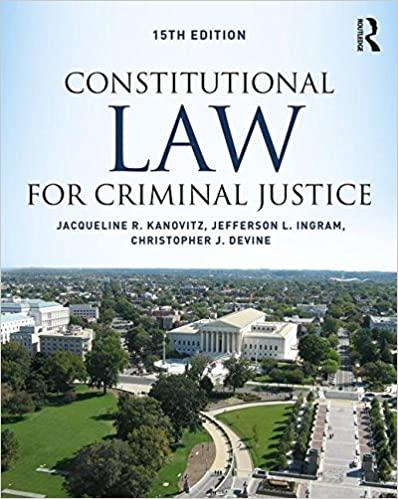Question
Until 1677 and the creation of the Statute of Frauds in England, all contracts could be either written or oral and yet be equally binding
Until 1677 and the creation of the Statute of Frauds in England, all contracts could be either written or oral and yet be equally binding on the parties. After 1677, the law required certain types of contracts (such as contracts to buy or sell land) to be both made in writing and executed with the physical signatures of all of the parties involved. At any time thereafter, either party could challenge authenticity of the physical signature of his/her own handwriting or the handwriting of the other party. Recently, with the increase of eCommerce, electronic signature (non-physical) has become as equally binding as the physical signature with severe limitation allowed in challenging the authenticity. Has this developed out of necessity, or have we simply moved too far with the law accommodating the digital age?
Give Reference
Step by Step Solution
There are 3 Steps involved in it
Step: 1

Get Instant Access to Expert-Tailored Solutions
See step-by-step solutions with expert insights and AI powered tools for academic success
Step: 2

Step: 3

Ace Your Homework with AI
Get the answers you need in no time with our AI-driven, step-by-step assistance
Get Started


